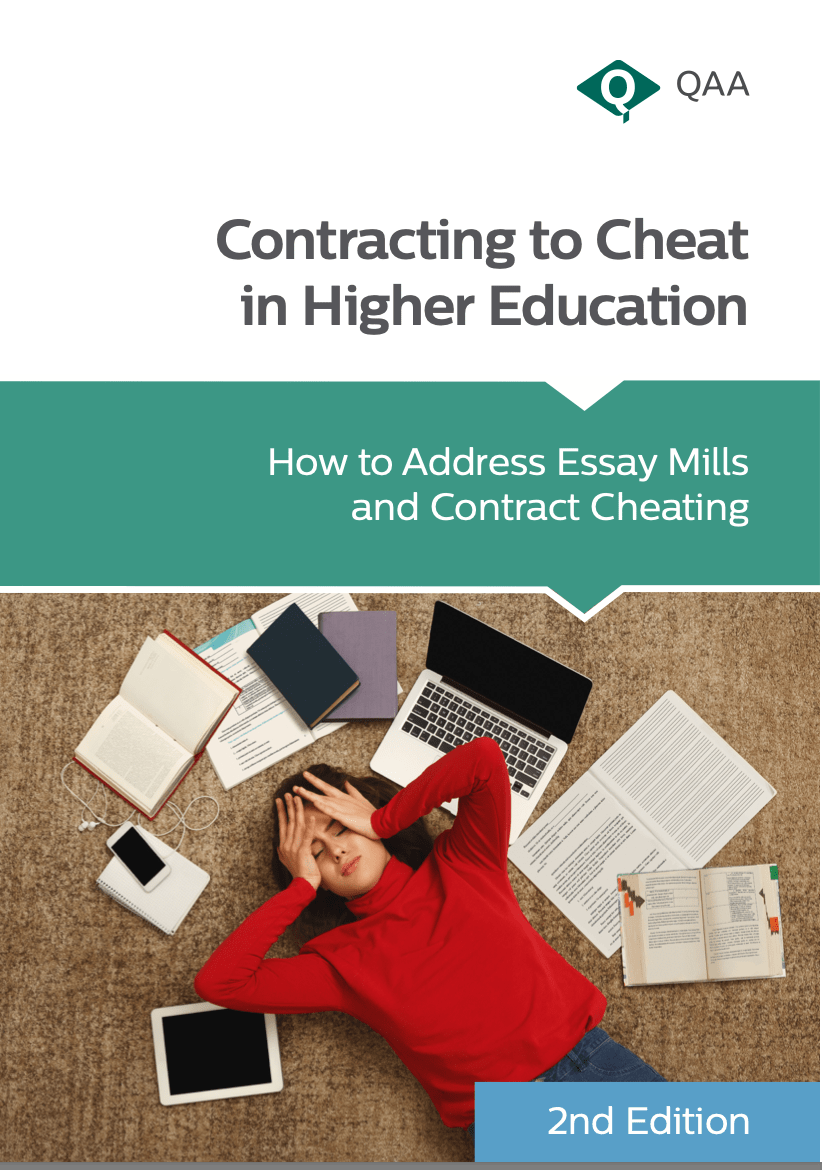Following the recent Ministerial speech about universities and our failings the Guardian reports that we can expect a higher education green paper soon.
Naturally, we should all be less than enthusiastic about the possibility of yet more government intervention in what is already a highly over-regulated sector. Especially following the promulgation of new Office for Students regulations relating to conditional unconditional offer making during the current pandemic.
As noted here (many times) before, the more constraints there are on universities the harder it is for them to deliver on their missions and indeed even harder for them to achieve what governments are regulating further for them to do.
However, in a reluctant departure from this general anti-regulatory stance, I do think there is one very specific area where we do actually need more government legislation – outlawing the profiteering essay mills. I have written before about the need to tackle this poisonous trade and noted that Philip Newton, in a recent systematic review, had uncovered that many as one in seven students admitted to paying someone else to do their academic work.
This staggering piece of data shows the risk we are facing of this pernicious business undermining the fundamental integrity of our sector. We have to tackle this issue though if we are to address the central lie at the heart of this cynical, exploitative essay mill business that somehow this is all about providing a service for students and is not at all about cheating.
Essay mills and the charlatans who run them have a business model which is founded on making profit from corrupting the assessment process and profiting from the vulnerabilities and anxieties of students. They have to be stopped and we need legislation to help make that happen.
Lording it
I was pleased to see this recent response by Baroness Berridge to a parliamentary question from Lord Storey on the topic but this doesn’t offer any guarantee of progress:
The government is aware that legislation has been introduced in several countries to ban contract cheating services, including in New Zealand, several states in the USA and, most recently, Ireland. It should also be noted that a bill was introduced in Australia in December which, if passed, would make it an offence to provide or advertise academic ‘contract cheating’ services in higher education.
We would be willing to consider supporting any legislation, including a Private Members’ Bill, that is workable and that contains measures that would eliminate essay mills in ways that cannot be delivered through other means, provided that the Parliamentary time permitted.
Disappointing that government does not see it as a priority but at least they are supportive.
There has been some important work on this in Europe where a Platform on Ethics, Transparency and Integrity in Education (ETINED) of the Council of Europe was established a few years ago and is continuing to work on a joined up approach at European level. British experts are involved in the activities of ETINED but it remains to be seem how much purchase this will get in our sector.

Home grown
There is welcome new guidance just out from the Quality Assurance Agency though in the form of a new guide: Contracting to Cheat: How to Address Essay Mills and Contract Cheating shows that many universities are making good progress with tackling the essay mill cheaters but that more needs to be done. The paper updates earlier guidance with new advice, intelligence and good practice in response to the ever-evolving threat.
The key findings and recommendations in the report are:
- Identifying a strategic lead with responsibility for staff training and institutional coordination can help improve detection of essay mill use.
- Assessment design can help reduce opportunities to cheat, but no assessment should ever be considered cheat proof.
- Technology can help detect the use of essay mills, but is most effective when used by experienced staff with knowledge of the student.
- Essay mill marketing seeks to exploit students who are feeling vulnerable or anxious, particularly during the COVID-19 pandemic. Effective institutional and peer support can help.
- Staff and students should be aware of, or be able to easily access, information and procedures to follow to report a suspicion of academic misconduct.
Welcome advice and all very sensible.
Laying down the law down under
This is all positive but we still do need to go much further. Australia, as often appears to be the case in the higher education legislative stakes, is leading the way with some significant steps. Following proposals published some time ago and planned laws to ban cheating services, the Minister for HE, Dan Tehan, has announced that the government is to fund an ‘integrity unit’ which will be based within the Tertiary Education Quality and Standards Agency (TEQSA, the Australian equivalent of the QAA) and will work with the sector to protect the interests of students and the reputation of Australia’s universities:
The unit will identify and analyse emerging threats and assist the sector to address them, in areas such as academic and research integrity, cyber security, foreign interference and admission standards.
The unit will seek Federal Court injunctions to block access to cheating websites under the Prohibiting Academic Cheating Services Bill, once this legislation is passed.
Where required, the integrity unit will liaise and consult with other Commonwealth and state government agencies such as the Australian Federal Police, the Commonwealth Director of Public Prosecutions, the Cyber Security Centre, Department of Home Affairs and the Commonwealth Fraud Prevention Centre (CFPC).
Minister for Education Dan Tehan said the integrity unit would protect students and universities.
“Australia has a world-class and respected higher education sector built on its integrity and we cannot afford to risk that,” Mr Tehan said.
“The integrity unit will ensure that universities continue to focus on the student experience and maintain the highest levels of quality.
“Our Government is funding an integrity unit because we recognise the important role that universities will play in educating job-ready Australians to power our post-COVID economic recovery.
The government in Australia is also clearly signalling the vital role of higher education in regenerating the post-Covid economy.
So, come on Minister, find a paragraph in the Green Paper for a proposal to outlaw the cheaters and the profiteers. Let’s ban the obscene essay mill business for good.














I fully agree and this has been a long-running saga. A year ago I posted regarding Lord Storey’s Bill: “Lord Storey’s bill to ban essay mills – definitely a move in the right direction. We have been calling for action for a long time now. https://lnkd.in/dqArgjU” … but nothing has progressed so far
Excellent Call to Action, and very much needed. I would also put predatory publishers in the list. Different problem but also undermining academic integrity and infecting the scientific archive.
My experience while at QAA was that the government wants to combat essay mills, but remains reluctant to take a legal/legislative approach. Several years back Jo Johnson said no to a QAA recommended legislative approach, but also said the ‘door would remain open’ to the possibiltiy if other measures proved insufficient. Long time campaigners like Lord Storey keep pushing, and perhaps soon it will happen. Just a word of caution, though. In addition to proposed legislation in Australia, TEQSA is to establish a ‘Higher Education Integrity Centre’ which will look at ‘admission standards and information, academic and research governance integrity, student safety, foreign interference, cyber security, fraud and corruption’ – that is, much more then Essay Mills. TEQSA is a regulator with plenty of teeth should it care to use them, similar to the OfS (which took much inspriation from TEQSA’s powers in establishing its own), and it is yet to be seen how the new Centre and these regulatory powers wiil interplay. If UK is to likewise set up a centre to implement a legilsative approach, sitting it with a sharp toothed regulator could be inviting much more of the regulation you are opposed to.
For info, the ETINED working group on Education Fraud which has two U.K. members – Professor Michael Draper of Swansea University and myself – is making good progress on a high level policy document for the Council of Europe. I expect this will be progressed at a meeting of all 50 participating countries in November. After that, I hope it will be approved at political level, which would increase pressure on governments within the U.K. to take appropriate action. In parallel, the U.K. members support Lord Storey’s efforts.
I believe that criminal action should be taken on this essay milling companies to ensure that equality is attained for all. Most of this companies such as authenticessays.net help students to game the system which is unethical considering some go to the extent of handling the student exams. I wonder what kind of a workforce we are creating if criminal action will not be enforced